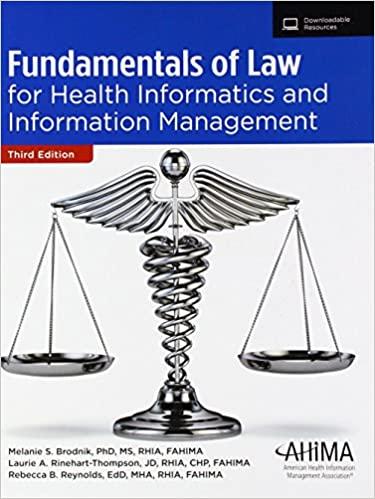Question
Professional Ethics and Responsibilities may sometimes conflict with one's personal ethics and values. While it is impossible to accurately predict how you will handle a
Professional Ethics and Responsibilities may sometimes conflict with one's personal ethics and values. While it is impossible to accurately predict how you will handle a given conflict, it is never too early to think through the issues.
Let's say you are working for a criminal defense attorney as a paralegal. As such, you don't get a vote on which cases the attorney gets hired on. In this hypothetical, your defense attorney has taken on an accused child molester. The attorney has told you that personally he thinks the client did what he is accused of, but has not come outright and asked him. The attorney says it really doesn't matter. The attorney also thinks that the only way we might win this case is to show that the child's testimony was manipulated or based on false memories and wants you to help prepare questions for the child to show this.
How to you resolve this? What rules of professional responsibility might be involved? Do you think you could do it? Would it matter if you believed he was falsely accused? Should you ask him directly?
Step by Step Solution
There are 3 Steps involved in it
Step: 1

Get Instant Access to Expert-Tailored Solutions
See step-by-step solutions with expert insights and AI powered tools for academic success
Step: 2

Step: 3

Ace Your Homework with AI
Get the answers you need in no time with our AI-driven, step-by-step assistance
Get Started


